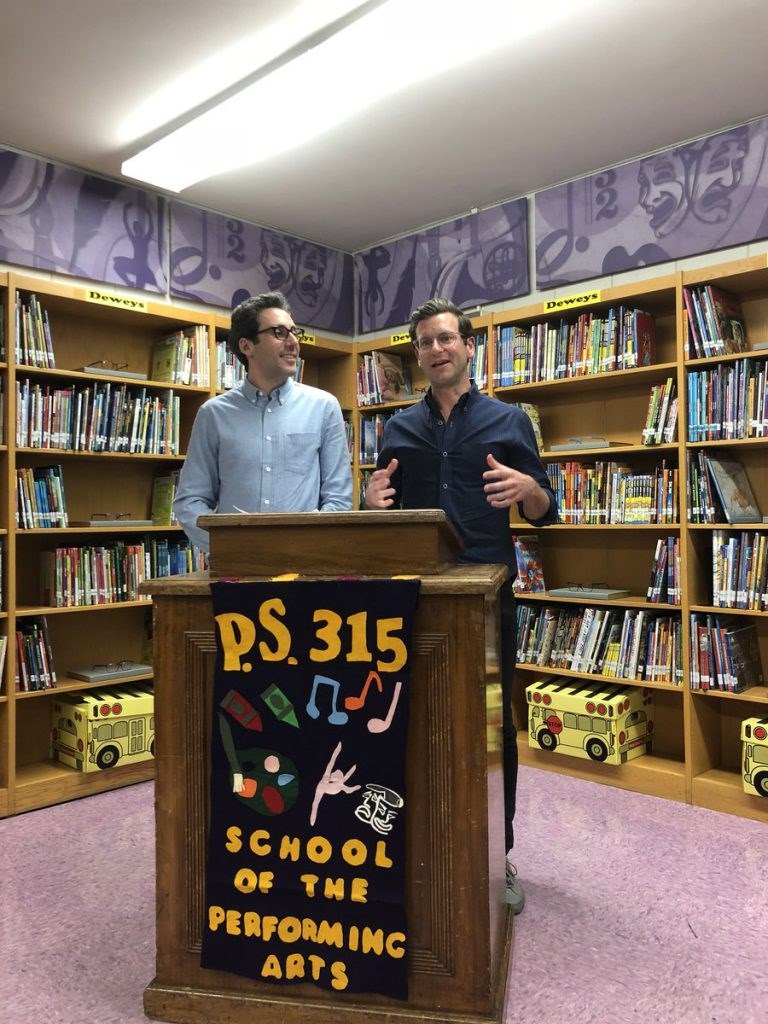The expansion of the partnership between Warby Parker and NYC's Community Schools Initiative will bring free vision services to all 227 schools, reaching an additional 118,000 students

Eyeglass retailer Warby Parker and the NYC Department of Education announced on Tuesday the expansion of their "Vision Partnership" which will bring free eye exams and eyeglasses to 227 Community Schools in New York City, reaching 118,000 students. School Chancellor Carmen Farina, joined by other public officials and Warby Parker Co-Founders and Co-CEOs Neil Blumenthal and Dave Gilboa, announced the expansion at P.S. 315 in Flatbush.
"We know if students can't see the whiteboard or read the book in front of them, they simply can't succeed in school. Community Schools address the whole needs of the child, including school-based health supports," said Fariña. "This expansion will provide thousands more students with free eyeglasses and vision screenings, and help students cultivate a love of reading from an early age, and we're grateful to Warby Parker for their partnership."
The city is dedicating more than $1 million to support the expansion of the partnership with Warby Parker. Since the initiative's launch in 2015, approximately 94,000 students attending 130 Community Schools have received eye exams and more than 20,000 pairs of free, stylish Warby Parker eyeglasses have been distributed. Community Schools are neighborhood hubs where students receive quality academic instruction, families can access social services, and communities congregate to share resources and address their challenges.

"Students face a wide variety of obstacles that stand in the way of their receiving the best possible education. One that is too-often neglected is simple - an inability to see clearly, and therefore to concentrate, in class," said Councilmember Jumaane Williams. "We need to do all that we can to address these kinds of impediments to learning, and I'm pleased that Warby Parker and the city are able to partner together to make these solutions accessible to low income and disadvantaged students."
Founded in 2010, Warby Parker is an NYC-based lifestyle brand that offers designer eyewear at an affordable price. Serving the community has been a part of their business culture since the company's inception. Internationally, Warby Parker's "Buy a Pair, Give a Pair" program trains adults in developing countries to give basic eye exams and sell glasses to their communities at affordable prices. And already prior to the partnership with the Community Schools Initiative, the company piloted a similar program from 2014-15 to provide New York City students with the vision corrections they need to excel in the classroom.
"We're thrilled with the progress we've made in the first two years of our partnership with the City of New York," said Warby Parker's Neil Blumenthal. "Vision impairment is the single most prevalent disabling condition among children in the United States and we're proud of the steps we've taken so far to address a complex issue in our own backyard."
The expansion of free vision services builds on the city's commitment to the Community Schools Initiative through which students and families can access a range of resources that support learning, health and wellness, family and community engagement and include school-based health centers, food pantries and adult education courses, among others.



